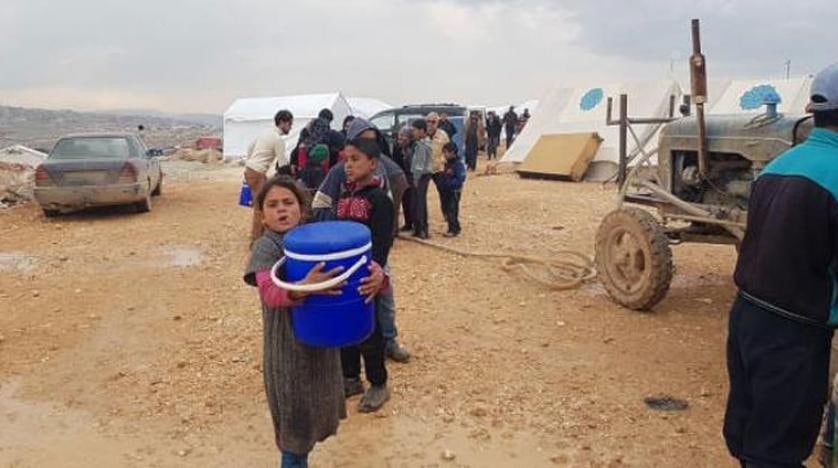In northwestern Syria, the number of camps facing water shortages has risen to more than 658 out of 1,633 camps, which are scattered across the region. According to Syria Response Coordinators, 34 new camps, which have ceased to receive support from humanitarian organizations operating in the area, have joined this list.
The organization said that the interruption of water assistance in the new camps is concentrated within the Afrin area, north of Aleppo. It added that cutting water support in those camps coincides with the confirmation of 19 cases of cholera in the camps for displaced people, in addition to 152 suspected cases in 30 camps.
Read Also: Cholera Outbreak: Towards “Worst Scenario”
Regarding sanitation, 63% of the camps suffer from the spread of disease via open sewers. Many camps have just one toilet for every 65 people.
The organization warned all parties that the water crisis would continue, especially in light of the declining living standards, the high price of drinking water in many cities and rural areas, and the presence of many people who do not have regular access to clean drinking water. It indicated that this represents a real threat to people’s social and economic stability if they remain in their communities. Alternatively, the water crisis can push them to migrate to other places in search of sustainable access to water, both in terms of quantity and quality.
The organization urged all parties to provide water to the region’s camps for displaced people, especially since displaced families in the camps spend about 20% of their total income on the water in the winter, with that figure rising to 33% in the summer.
This article was translated and edited by The Syrian Observer. The Syrian Observer has not verified the content of this story. Responsibility for the information and views set out in this article lies entirely with the author.


